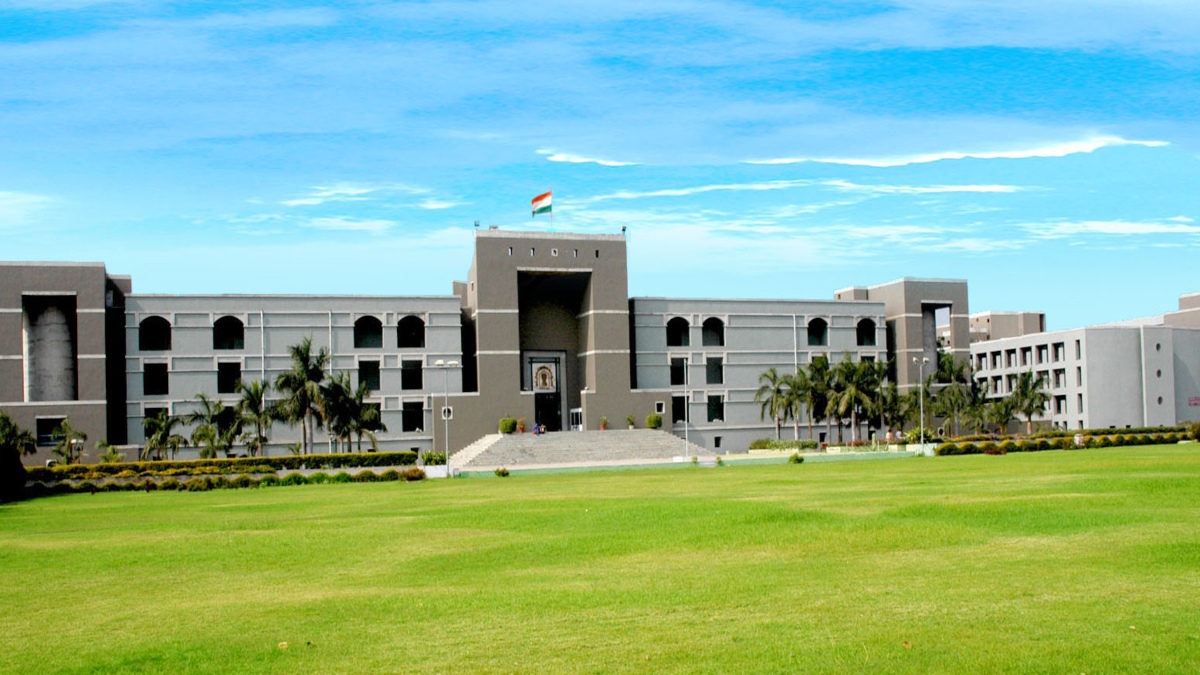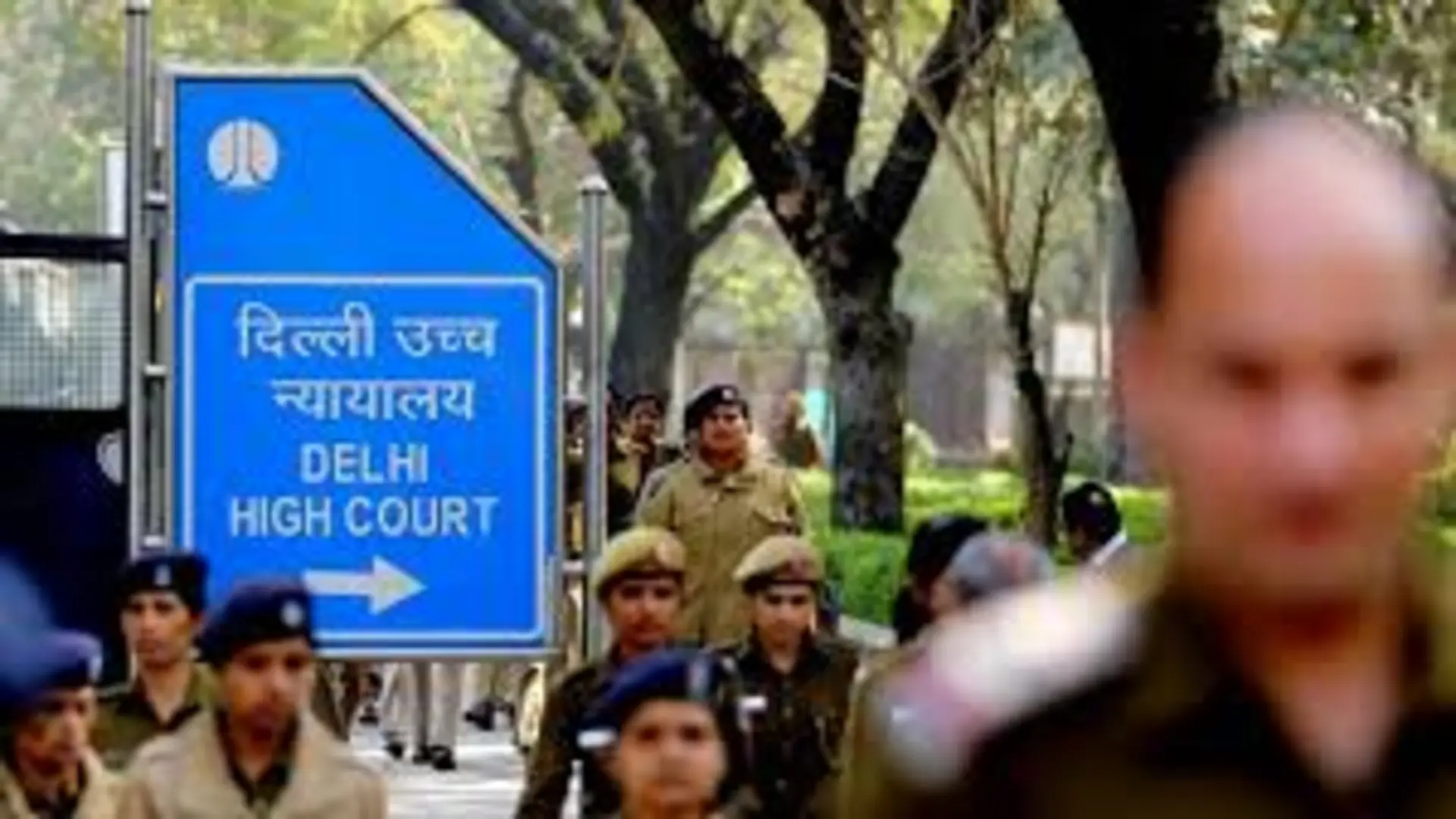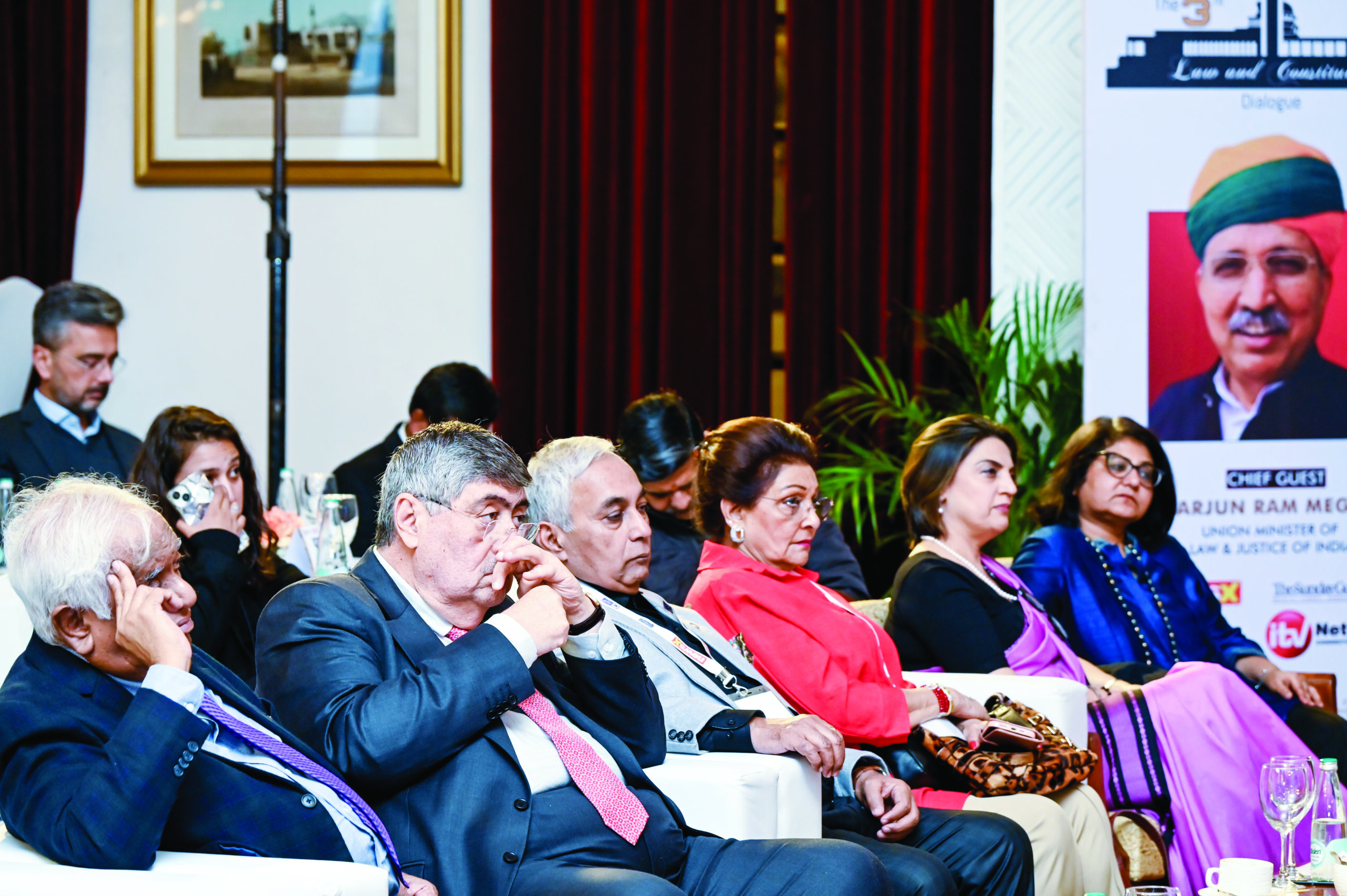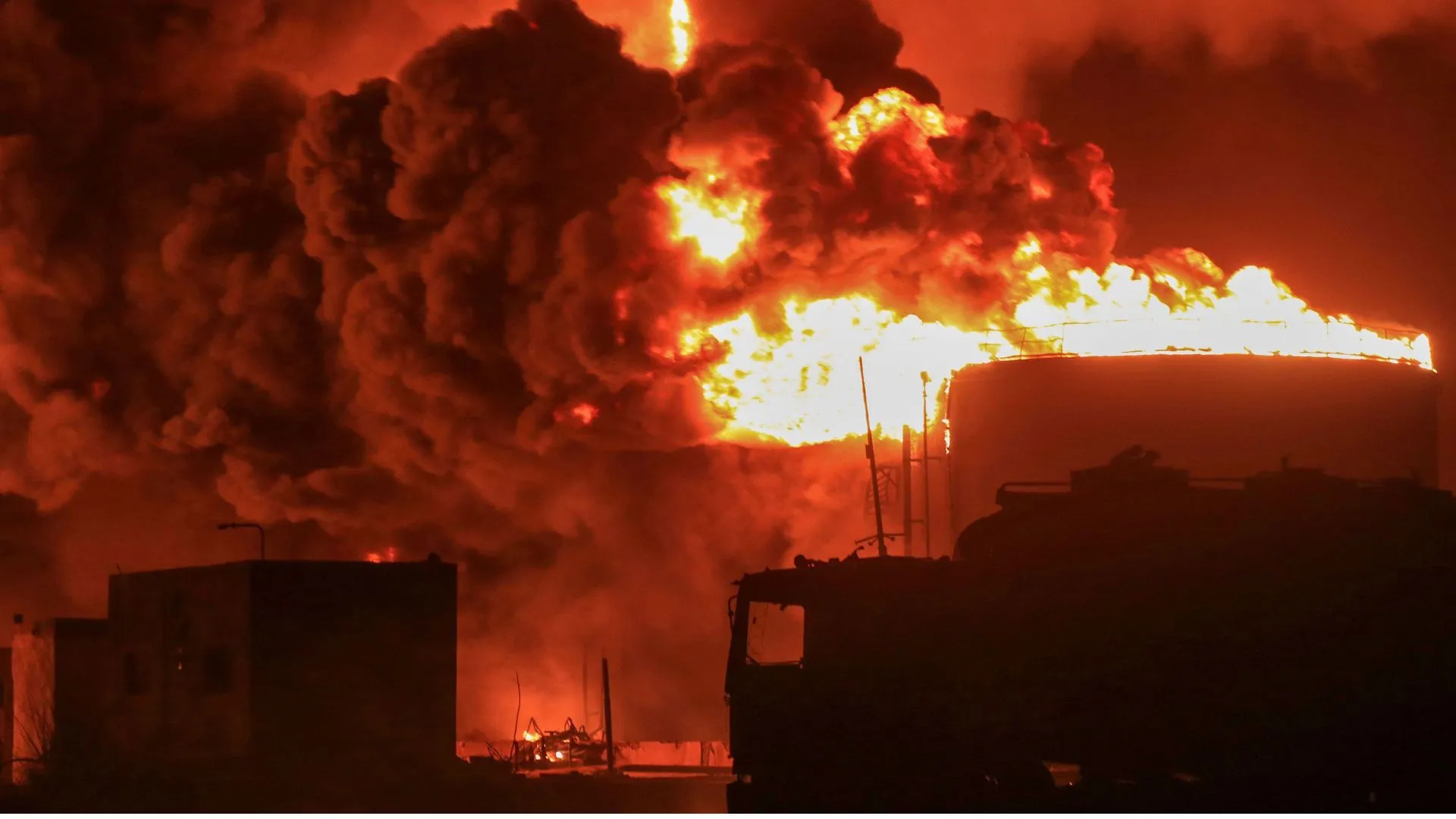While clarifying the evidentiary value of co-accused and its utility, the Gujarat High Court has in a learned, laudable, landmark and latest judgment titled Firoz Hajibhai Sodha vs State of Gujarat in R/Criminal Misc. Application No. 5836 of 2021 delivered finally on February 8, 2022 made it clear that the statement by a co-accused under Section 25 of the Indian Evidence Act can be treated as a clue or piece of information for initiating and conducting investigation to find out whether there is any independent and satisfactory material for further investigation. It must be mentioned that the single Judge Bench comprising of Justice Vipul Pancholi made this observation while hearing an application under Section 482 of CrPC seeking the quashment of the FIR for charges under Sections 65(e), 116B, 81 and 98(2) of the Gujarat Prohibition Act and under Sections 465, 468 and 471 of IPC. The Bench clearly stated that, “So far as the present applicant is concerned, till date the investigation is not over and, therefore, it is always open for the investigating agency to consider the statement of the co-accused for the purpose of further investigation.”
To start with, this oral order authored by the single Judge Bench of Justice Vipul M Pancholi first and foremost puts forth in para 1 that, “By way of the present application under Section 482 of the Code of Criminal Procedure, 1973 (for short, the ‘Code’), the applicant prays for quashing and setting aside the FIR being C.R. No.1120805500310/2020 registered with DCB Police Station, Rajkot City for the offence punishable under Sections 65(e), 116-B, 81 and 98(2) of the Gujarat Prohibition Act and under Sections 465, 468 and 471 of the Indian Penal Code.”
Simply put, the Bench then puts across in para 2 that, “It is stated by the applicant that on the basis of the statement of the co-accused, the applicant has been implicated in the FIR in question and there is no material against the present applicant connecting him with the incident in question. The applicant has, therefore, urged that this application be allowed by quashing and setting aside the impugned FIR.”
As against the hereinabove, the Bench then states in para 3 that, “On the other hand, learned APP has opposed this application and mainly contended that the statement of the co-accused can be considered during the course of investigation as a clue for further investigation and, therefore on this ground, the impugned FIR may not be quashed. Learned APP has placed reliance upon the order dated 17.09.2020 passed by this Court in Criminal Misc. Application No.11508/2020, wherein this Court has, after considering the reported decisions of this Court as well as the Hon’ble Supreme Court, dismissed the similar type of application. Learned APP has submitted that the issue involved in the present application is squarely covered by the said order. It is, therefore, urged that this application be dismissed.”
Truth be told, the Bench then discloses in para 4 that, “Having heard learned APP and having considered the averments made in the memo of application including the material placed on record, it would emerge that the present application has been filed by the applicant only on the ground that the applicant has been falsely implicated only on the basis of the statement of the co-accused. However, it is pertinent to note that so far as the present applicant is concerned, till date the investigation is not over and, therefore, it is always open for the investigating agency to consider the statement of the co-accused for the purpose of further investigation.”
While citing the relevant case law, the Bench then brings out in para 5 that, “Further as stated above, in similar type of aspect in case of Jignesh @ Jigo Jado Jagdishbhai Jarivala Vs. State of Gujarat in Criminal Misc. Application No.11508/2020 decided on 17.09.2020 this Court has observed in Paragraph Nos.6 to 10 as under,
“6. At this stage, it is relevant to note that this Court has observed in the case of Mohmed Salim abdul Rasid Shaikh v. State of Gujarat, reported in 2001(2) GLR 1580, in para 12, as under:
“12 t is pertinent to note that the prosecution case rests mainly on circumstantial evidence and police has received a clue against the present applicant from the statement of co-accused, already arrested. Irrespective of the fact that statement of co-accused to police is not admissible in evidence before the Court, but police can certainly consider that statement as a clue while interrogating him further or other persons arrested or interrogated during the course of investigation ””
While citing yet another relevant case law, the Bench then describes in para 7 that, “In another case of Dolatram Tekchand Harjani v. State of Gujarat, reported in 2013 (3) GLR 2133, this Court has considered similar contention and thereafter observed in para 9.10 to 9.13 as under:
“9.10 The said submission gives rise to an issue viz. does it mean that on the basis of, or in light of, a statement of co-accused even investigation cannot be initiated. On this count, it comes out that while raising the said contention, it is conveniently overlooked that such position or preposition does not mean that statement by a co-accused cannot act as or cannot be even treated as a piece of information or a clue to initiate and conduct inquiry/investigation so as to find out whether there is any independent, cogent, reliable and satisfactory material/evidence which may support, justify and provide cause for further investigation or a charge-sheet and a trial.
9.11 In present case, name of the petitioner is disclosed / mentioned in a statement of a co-accused with reference to offence under Sections 307 and 120B of IPC and Sections 25(1)A and (b) and 27(1) of Arms Act and therefore, police has commenced investigation.
9.12 Against such investigation process, the petitioner has taken out present petition under Section 482 of the Code and prayed that the investigation process may be stopped and it may be quashed. In support of the said request, the aforesaid contention is raised.
9.13 The position/preposition (raised in light of the provision under Section 25 of the Indian Evidence Act) that a statement by a co-accused is not admissible in evidence and therefore cannot be relied on, cannot be construed to mean that such statement cannot be even considered or treated as a clue or a piece of information to initiate and conduct inquiry/investigation or to direct the investigation/inquiry in a particular direction. Such a statement can be treated as a clue or piece of information (and not evidence) for initiating and conducting investigation/inquiry so as to find out as to whether there is any independent, satisfactory and reliable material which may support or justify or provide reason for continuing inquiry/investigation for initiating further investigation. At the stage when the investigation has commenced or the process is going on any occasion or any question of treating or considering such a statement as evidence does not arise and that, therefore, it would not be proper and just to terminate, i.e. to direct the investigation officer to close the investigation.””
In para 8 the Bench then states that, “Further, in the case of Kalyan Chandra Sarkar v. Rajesh Ranjan Alias Pappu Yadav, reported in (2004) 7 SCC 528, the Hon’ble Supreme Court has observed as under:
“The next argument of the learned counsel for the respondent is that prima facie the prosecution has failed to produce any material to implicate the respondent in the crime of conspiracy. In this regard he submitted that most of the witnesses have already turned hostile. The only other evidence available to the prosecution to connect the respondent with the crime is an alleged confession of the co-accused which according to the learned counsel was inadmissible in evidence. Therefore, he contends that the High Court was justified in granting bail since the prosecution has failed to establish even a prima facie case against the respondent. From the High Court order we do not find this as a ground for granting bail. Be that as it may, we think that this argument is too premature for us to accept. The admissibility or otherwise of the confessional statement and the effect of the evidence already adduced by the prosecution and the merit of the evidence that may be adduced hereinafter including that of the witnesses sought to be recalled are all matters to be considered at the stage of the trial.””
What’s more, the Bench then observes in para 9 that, “Further, in the case of Mohammed Fasrin v. State Rep. By the Intelligence Officer, rendered in Criminal Misc. Application No.296 of 2014, the Hon’ble Supreme Court observed as under:
“…….The confessions of a co-accused gives a clue to the investigating authorities as to how to investigate the matter and against whom to investigate the matter. Thereafter, it is for the investigating officers to collect evidence against the said person who has been named by the co-accused…..””
As a corollary, the Bench then holds in para 10 that, “From the aforesaid decisions, it would be clear that a statement of co-accused can be considered or treated as a clue or a piece of information to initiate and conduct inquiry/investigation or to direct the investigation/inquiry in a particular direction so as to find out as to whether there is any independent, satisfactory and reliable material which may support or justify or provide reason for continuing inquiry/investigation for initiating further investigation. At the stage when the investigation has commenced or the process is going on any occasion or any question of treating or considering such a statement as evidence does not arise and therefore it would not be proper and just to terminate, i.e. to direct the investigating officer to close the investigation. It is also required to be noted that the admissibility or otherwise of the confessional statement can be examined at the stage of trial and not at the stage of investigation. Thus, Section 25 of the Evidence Act would come into play not at the stage of inquiry/investigation but at the stage of trial.”
No wonder, the Bench then is disposed to hold in para 6 that, “Thus, this Court is of the view that the present matter is squarely covered by the aforesaid order passed by this Court. Therefore, this Court is not inclined to exercise the powers under Section 482 of the Criminal Procedure Code, 1973 in favour of the present applicant at this stage.”
Finally, the Bench then concludes by holding in para 7 that, “Therefore, the present application is dismissed. However liberty is reserved to file fresh application before this Court after filing of the chargesheet if there is no material against him in the chargesheet papers.”
All told, the bottom-line of this notable judgment is that the statement of co-accused is inadmissible in court but has a significance for the purpose of investigation. The statement of co-accused is certainly not admissible in court but what cannot be discounted is that it has a lot of relevance for purpose of investigation. This is exactly what forms the real hallmark of this judgment!













